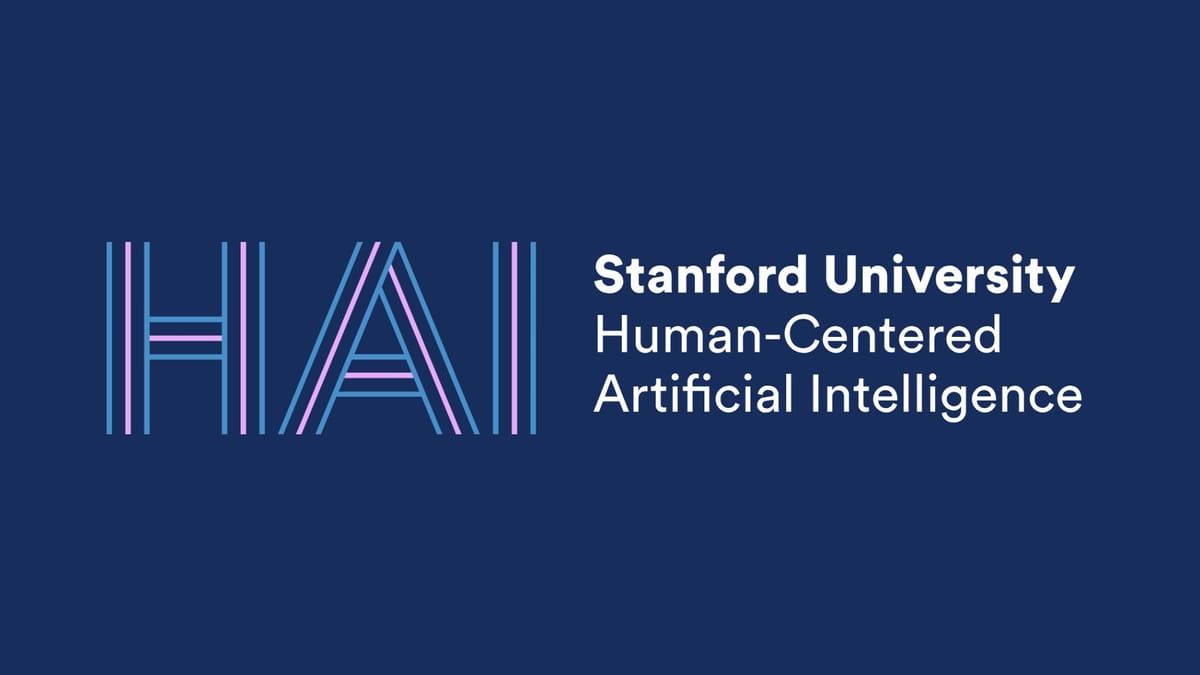🇺🇸 Stanford Human-Centered AI (HAI)
The mission of HAI is to advance AI research, education, policy and practice to improve the human condition.

Founded. 2019
Headquarters. Stanford, 🇺🇸 United States
Website. hai.stanford.edu
LinkedIn.
Artificial intelligence (AI) has seen rapid development over the past decade, influencing sectors from healthcare to education and transportation. With this growth come questions about the broader impact of AI on society, including ethical concerns and its potential effects on jobs, privacy, and decision-making. To address these issues, Stanford University established the Human-Centered AI (HAI) initiative in March 2019. The program takes an interdisciplinary approach to studying AI, focusing on how it can be developed and deployed in ways that benefit society while minimizing potential harms.
The Mission of Stanford HAI
Stanford HAI’s mission is to advance AI technology while focusing on its impact on humans and society. Its work is structured around three main objectives:
- Research in AI: The initiative supports research that pushes the boundaries of AI development in areas like machine learning, natural language processing, and computer vision. This research is designed to address both technical challenges and societal issues. Rather than focusing solely on innovation, HAI places importance on understanding how AI systems can improve human decision-making and interaction.
- Policy and Governance: HAI seeks to contribute to the development of AI policies and governance frameworks that guide the responsible use of AI technologies. This involves working with policymakers, industry professionals, and international stakeholders to establish guidelines that address issues like privacy, bias, and the risks associated with autonomous systems.
- Societal Impact: Another central aspect of HAI’s mission is to examine how AI affects social systems, from labor markets to democratic processes. Research in this area seeks to understand both the positive and negative implications of AI adoption across different sectors of society, with an emphasis on mitigating negative impacts.
Interdisciplinary Collaboration
A key aspect of Stanford HAI is its interdisciplinary nature. The initiative brings together experts from various fields, including computer science, economics, law, philosophy, and medicine. This collaboration is intended to ensure that the ethical, legal, and social dimensions of AI are considered alongside technical advancements. By integrating perspectives from different disciplines, the initiative aims to produce a more holistic view of how AI can be developed and used responsibly.
HAI also emphasizes the importance of understanding the cultural and societal contexts in which AI technologies are deployed. This means considering how AI systems might interact with existing social structures, and how they could be designed to align with human values like fairness and transparency.
Notable Projects and Initiatives
Stanford HAI oversees several initiatives aimed at better understanding and guiding the development of AI technologies. One of its key efforts is the AI Index Report, an annual publication that tracks the state of AI development across the world. The report examines trends in AI research, development, and policy, providing data that can help researchers, policymakers, and businesses make informed decisions about the future of AI.
Another important project is the Ethics and Society Review (ESR), which aims to evaluate the ethical implications of AI research proposals before they receive funding. By reviewing the potential societal impacts of new AI technologies, the ESR helps ensure that ethical considerations are part of the research process from the start.
In addition to these initiatives, Stanford HAI organizes workshops, conferences, and educational programs designed to engage the public and encourage discussions on AI’s broader societal implications. These events provide platforms for collaboration and dialogue among technologists, academics, and the public, fostering a more comprehensive understanding of AI’s potential benefits and challenges.
A Balanced View of AI Development
The establishment of Stanford HAI reflects a growing awareness of the need to balance the technical potential of AI with concerns about its broader social impact. As AI becomes more integrated into everyday life, questions about its ethical use, fairness, and governance will continue to gain importance. Stanford HAI seeks to contribute to this conversation by bringing together a range of perspectives and producing research that addresses both the technical and societal aspects of AI.
While HAI's work highlights many of the positive uses of AI, such as improving decision-making and streamlining processes, it also critically examines the risks. These include the potential for AI systems to perpetuate biases, infringe on privacy, or cause unintended social harm. By taking an interdisciplinary and human-centered approach, HAI aims to ensure that AI technologies are developed in ways that are socially beneficial, while also addressing the complex challenges they present.
In summary, Stanford HAI is focused on studying AI from a human-centered perspective, combining technical research with ethical, legal, and societal considerations. Its work offers a comprehensive approach to understanding how AI can be developed and governed to serve both technological and societal needs.




